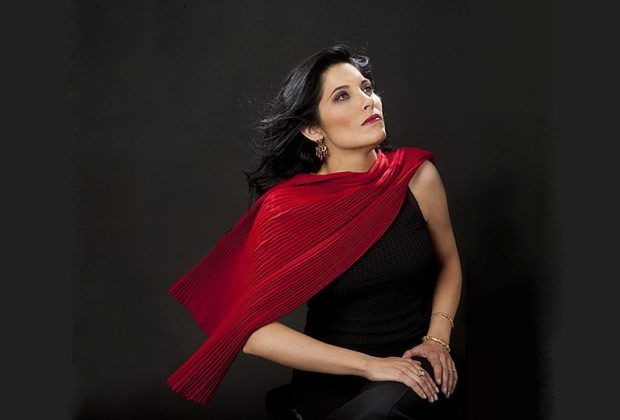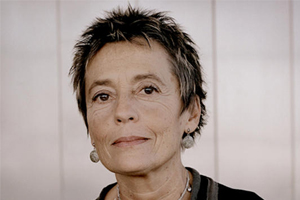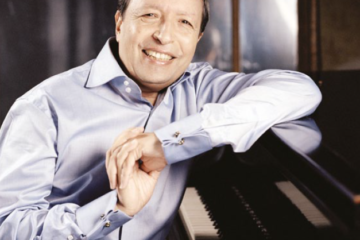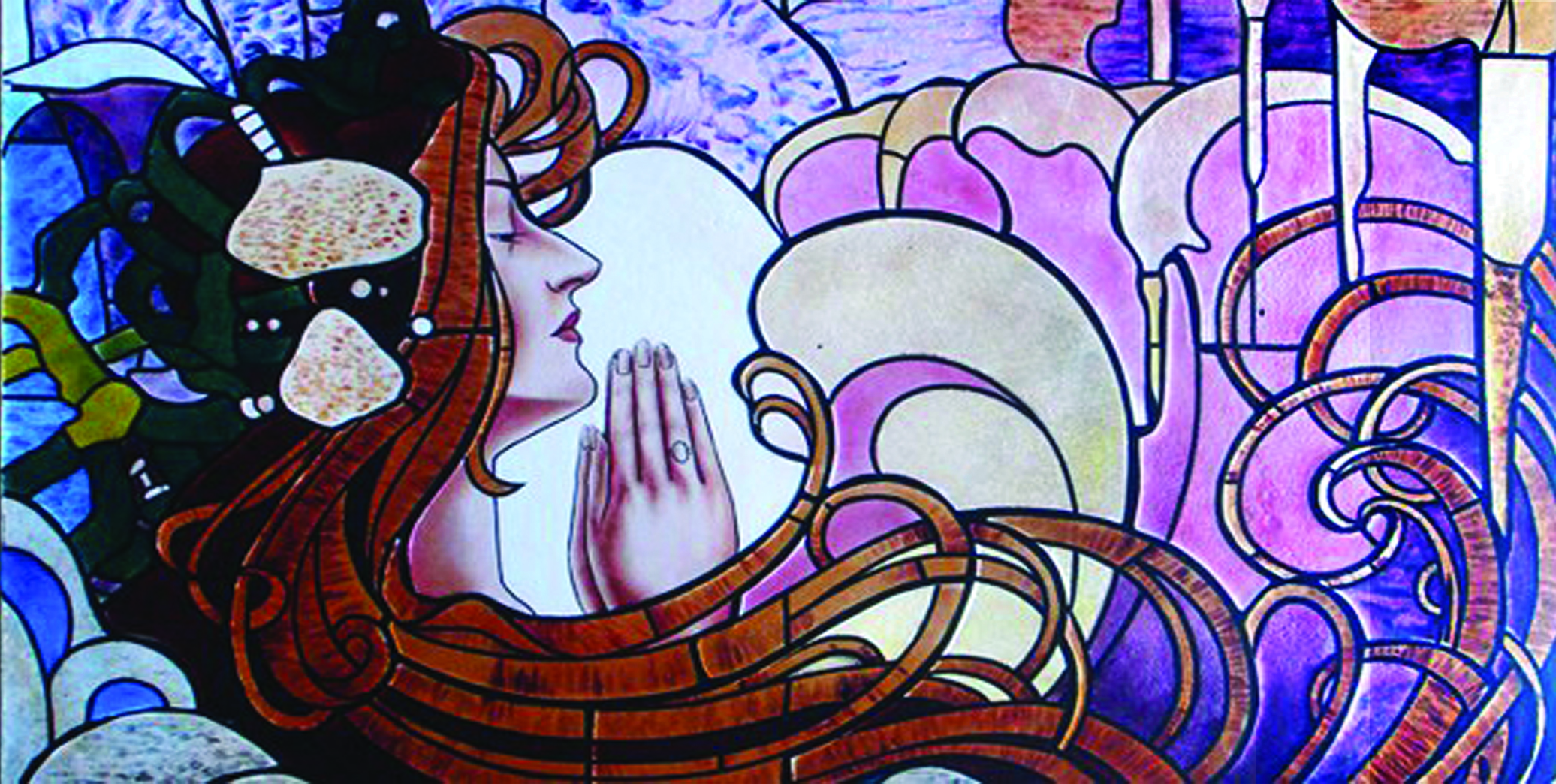
Vivica Genaux and her passion for Baroque music
If vocal Baroque music is intrinsically linked to extraordinary virtuosity, then Cecilia Bartoli’s 1999 Vivaldi recording imposed an impossible standard. After a few years, the first CDs of the American mezzo-soprano Vivica Genaux, most of them the one dedicated to arias composed for Farinelli, have proven that the impossible can be conquered, as her virtuosity provoked perplexity due to an unhuman agility. Even so, the technical virtuosity is always accompanied by the musical sense of a great artist and the purpose is not astonishment but, emotion. The program of her recital with Europa Galante and Fabio Biondi in the Romanian Atheneum was dedicated to Antonio Vivaldi’s works.
You studied with Virginia Zeani, a great Romanian soprano. What roles did you study together and what is the most important piece of advice that she gave you?
I discovered her, as I do most things in my life, by accident! Back then, I was studying part-time, during summer, with a soprano from Texas, but I was due to return to the University of Rochester, New York, where I was studying Genetics. I was very unhappy. So, my teacher from Texas advised me to go to Indiana University and study with Virginia Zeani, because she taught the belcanto technique and that was what I needed to learn according to her. I was fortunate enough that my parents supported that move, changing from science to music and so I went to the audition. Virginia Zeani took me into her studio and I studied for three years, both with her and with her husband, Nicola Rossi-Lemeni.
I was really young. Virginia Zeani made her debut, I think, when she was 17 with La Traviata and of course she had unbelievable experiences by the time she was that old, while I had been basically taken care of my whole life. It was all completely new to me. I had never seen anybody that elegant, that beautiful, that expressive and sure of herself and she seemed amazing to me; and so foreign from everyone else in my life. She was feminine, in a time where being feminine in the United States was seen as a weakness, which is why women were always trying to be as strong as possible, as masculine as possible. For me that was the first time I saw someone who was 100% feminine but stronger than any person I had ever met in my whole life. She was amazing, an inconceivable role model for me, from whom I learned so much: first from her presence and then from her teaching. I remember she always had a very strong accent when she spoke English and one time she came to the masterclass and said: “You know I know that you make fun of the way I talk, but I make fun of the way you sing!” She had an evil sense of humor and I think there was much to learn from that too, if we think about the years when she was singing… I read a lot of autobiographies from the sopranos of that period: Galina Vishnevskaya, Beverly Sills, Marilyn Horne. I don’t think it was an easy lifestyle. Although they earned good money, they had to fight for their position, which is something that we don’t have to do as much today. I think that today you have a bigger sense of collegiality and of there being space for everyone, rather than being threatened by somebody else being better than you. I think Virginia Zeani was very strong, beautiful, elegant and tough and I learnt a lot from that – that you can be feminine and strong. That was a great breakthrough!
How many years did you study Genetics?
One and a half, but I didn’t like it. It is funny because when I was at Indiana University, there was a fellow who was studying trumpet, but who has now become a Biology professor. We always say we traded off.
At the dawn of your career you performed Rossini with great success and then you headed towards baroque opera. How did that happen? Was it more suited to your temper, sensitivity or voice?
It was another accident. After singing Rossini for three years, people started to ask what else I could do, but I didn’t know what to answer. I didn’t sing Mozart, I still don’t do much Mozart… I don’t think it matches my voice. But going back to baroque, I was lucky enough to meet Matthew Epstein, who was at that time, I believe, artistic director of the Lyric Opera of Chicago. He looked at me and he said: “You need to sing Hasse!” but I didn’t know who Hasse was! It turned out that Hasse was one of the most famous composers of the 1700, on a par with Handel, Hayden and all of the Greats of that time period… Matthew never told me if he knew that René Jacobs was looking for someone for a Hasse opera or if it was just a complete accident, coincidence or a fortuity, but a month after that conversation, I was invited to sing for René Jacobs at the Staatsoper in Berlin – auditioning for an opera by Hasse! It was one of the two times in my life when I got a job from an audition. René Jacobs hired me on the spot and the next year, when I heard Concerto Köln playing for the first time, I became incredibly emotional, I was feeling something completely unusual. It was the first baroque orchestra I had ever heard in my life and it was like that moment in The Wizard of Oz, when Dorothy opens the door into that beautiful, land full of colour. When I heard them playing, it was like I saw the colours that I had never previously seen and the fact that I was invited to play in that world with them, to be part of that, to experiment with those colours… it was brilliant! I fell in love with the Baroque music immediately, because of the sound, because of the participation of the instruments, but also because of the way it was written for the voice. I have always loved Coloratura, with its spectacular side, full of virtuosity and then also the arias, like the famous Ombra mai fu, as it just seemed to me that they inspired so many emotions and there was so much time to luxuriate in those emotions. It’s like being in a jacuzzi and you just let yourself relax and explore every corner of one emotion, of one situation, of one problem, issue, joy, love… Since then, I remained faithful to Baroque opera because it opened a niche for me into its world and of course, because the recording of the Farinelli arias became my business card.
The disc entitled Arias for Farinelli enjoyed a tremendous success worldwide. Some arias were completely unknown, while others were of an incredible (astounding) virtuosity. Whose idea was it to record this disc? Did it belong to René Jacobs, one of the most important and inspired conductors of our times?
It was René Jacobs’ idea and I was lucky that I was able to work with him from the start, because I had no idea what I was doing. In the United States, the only Baroque music I had listened to was from England and it was very different from the European kind. The continental style is still, to this day, much more visceral and much freer and much more exploratory. I believe that English Baroque music is purer and not that emotional and has nothing in common with the belcanto voice technique that I use. René Jacobs has always encouraged me and he was able to illustrate the elements of the vocal technique whenever I needed help.
Out of respect for the great former musicians, you created a tribute disc dedicated to the singer Faustina Bordoni, who was born in Venice. What held your attention the most, what inspired and intrigued you about this singer, wife of the great composer Johann Adolph Hasse?
The first one who got me started on Faustina Bordoni was someone called Klaus Muller, a scientist who was in love with music. Both he and his wife had been huge fans of Hasse’s music and they had also learned about his wife. So, this one time after singing in Munich, this man approached me at the airport, where I was about to board a flight for Venice, and said: “You sang the concert last night! It was beautiful!” Then he started talking to me about Hasse and Faustina Bordoni and I found it all very interesting. Then, we boarded the plane and discovered we had seats next to each other. The conversation continued and he put me in touch with a musicologist in Dresden, who then took me to the library that has the whole collection of Hasse’s operas and then he put me in touch with all the people who are today my sources of information. He was miraculous!
When you are singing or recording arias that have never been recorded before, do you have a different approach? Does it imply more work? You cannot be inspired by your other colleagues’ recordings…
I have never been inspired by other people’s recordings, not since my very early years. I used to listen to Marilyn Horne and then people said I sounded like her. I didn’t like that… I have an ear that imitates very easily, which is good for languages, but when I’m learning a piece, I try not to listen to other people, whether it’s a piece that is well known or not, because I involuntarily grab onto their tempo or their cadenzas. Fortunately, now I have a program on my computer called Sibelius, where I put the manuscript and I can hear the orchestra. Therefore, without any kind of interpretation, just with the dynamics, I can hear the harmonic progressions, the colour inspired by the harmonies and then, when I go into rehearsal, I already have a base.
What is the next disc you will be recording?
I just had the most unbelievable experience! I was invited by Cecilia Bartoli to sing with her in Madonna del Lago and so I had to go back to Rossini. I was so happy, because I don’t get that many chances anymore to sing Rossini… We have already recorded at Salzburg Festival, just a couple of weeks ago, and hopefully it will come out in the next year. I’ve been listening to Cecilia for years and I had met her once briefly, but she was amazing to work with! She is an incredible, energetic and joyful person. The conductor was Gianluca Capuano, with whom I have worked before in Vivaldi, but he was amazing also in Rossini! This experience opened my heart completely!
I also think there should be a recording coming up that I did with the Bach Consort Wien and the conductor Rubén Dubrovsky, which took place during the concert in the Stephansdom last year: a Vivaldi program, including the famous Nisi Dominus. I have a project coming out in the fall, but it’s a stage project, even though I would love to be able to record it. It is based on the life of Pauline Viardot, the youngest daughter of Manuel Garcia and the sister of Maria Malibran. It will be a one-woman show but with costumes, lights, projections, a real theatre experience, and I will sing Pauline Viardot’s music and also what she composed for her students. She was a fascinating person, she spoke five languages and she translated some texts by Turgheniev and Pushkin.
Apart from all of that, I will sing Farinelli again.
Did you ever have a favorite recording that you couldn’t stop listening to over and over again?
I usually listen to every recording over and over again. I fall in love with it, I live in it, I listen to it again and it becomes part of my catalogue… I think the one that I keep going back to, is a fabulous disc with Jessye Norman singing the The Four Last Songs by Richard Strauss. I like it so much! And another one that became part of my psychological cargo is that of the zarzuela arias, a disc recorded by Victoria de los Angeles many years ago.
Which was the most important musical event of your life?
What I consider the most important moment because of everything that followed after, was when I was 13 and wanted to get the lead in the musical My Fair Lady that they were doing in the high school music camp in Alaska. That year I went off on a trip: 5 months in Japan and 5 months in Texas. In Japan, I found by mistake a libretto of My Fair Lady in English. I memorized it in two days and then kept pressuring my mother every day so that she would find me a voice teacher when we got to Texas. I wanted to take voice lessons so I could audition and get the lead. Therefore, she found me this teacher in Texas, who was the first to give me my first opera arias and who taught me the song from My Fair Lady. When I went back, I got the part – my first experience in musical theatre – and that was my turning point. I fell in love with being on stage, with singing, with the feeling I had that time.
Many of your live recordings gave rise to hundreds of comments and controversies on Youtube, regarding comparisons to other musicians. Some ask who performs Armatae face et anguibus from Juditha Triumphans better: Cecilia Bartoli, Karina Gauvin or Vivica Genaux? Is there any real competition between artists or it is sheer collegiality?
From my part, it is sheer collegiality. I sing because I am happy, because I want to sing, and if somebody wants to hear me, that’s great! I’m thrilled that I can make someone happy and I have people telling me that my singing has helped them in various ways, maybe gave their day a better start. I am on stage because I want to be there, because I want to express something and I want to have a good time, so there is no competition. The competition is with myself, with how much good time I can have, how well I can do it this time, how much I can express this time.
Are you interested in your fans’ comments? Do you have time to read them?
Not really, because I know how I did and I know I’m trying to get better every single day. I know I have to keep on studying and I know that I’m doing this for my art. I’m really happy if an audience has a great time and if someone doesn’t like me, that’s fine too. I have no animosity towards anybody and I am not available for either the positivity or the negativity, because I’m emanating these myself and that’s enough.
You live in Venice. How did you choose this city? Why not Rome or Florence?
I live here now because my husband used to live in a small town outside Venice. It is really funny, because the women in my family have travelled quite extensively. My mother’s mother was born in Leipzig, she got married and moved to Mexico. My mother was born in Mexico and she was sent to Switzerland, after the Second World War, to meet a good Swiss man and get married. Instead, she met my father, who was an American expat from the war, and they felt in love. He was also going to study abroad in Switzerland – they married and he got a job in Alaska. I was born in Alaska, I came to study voice here,in Italy and I met a beautiful Italian man… This is the story of my life!








